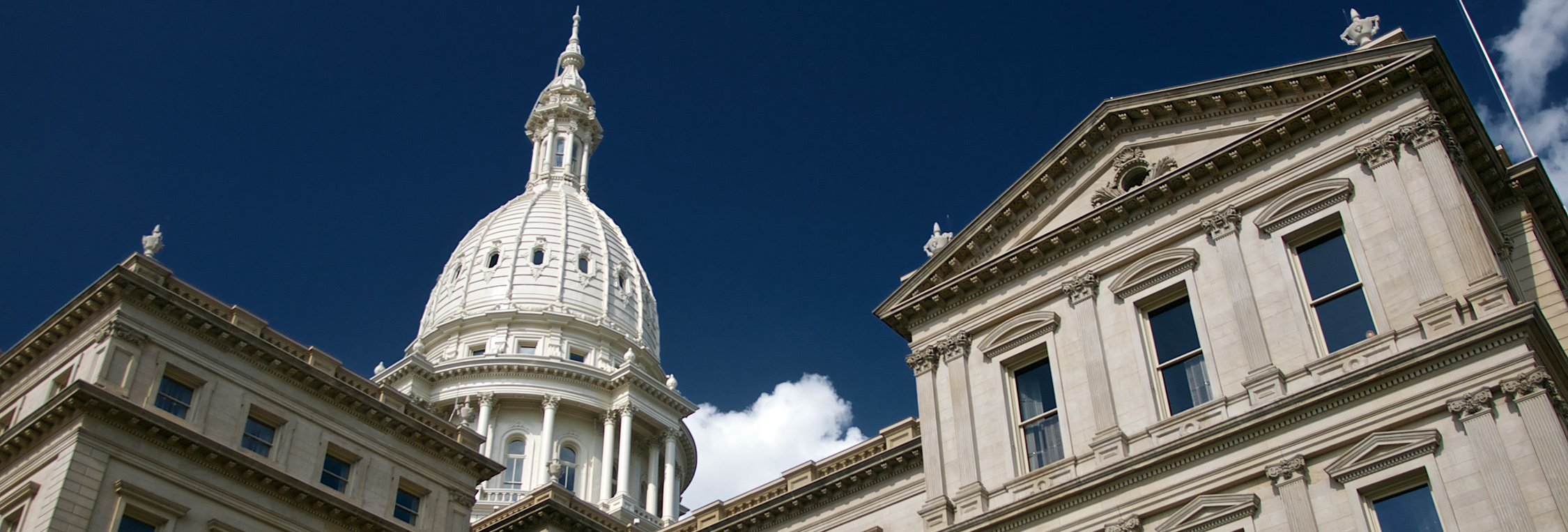
Program in Practical Policy Engagement
P3E History
The Program in Practical Policy Engagement (P3E) was established in the Spring of 2018 with a generous gift from the Power Foundation and support from the University’s Provost and Ford School.
Elisabeth Gerber, Jack L. Walker, Jr. Collegiate Professor of Public Policy, was the program’s director. She was joined by staff that had years of experience working on public policy at the local, state, and federal levels.
A university-wide resource, P3E leveraged existing expertise and interdisciplinary approaches to generate policy-relevant research, analysis, and learning and events. P3E’s work centered on engaged learning, policy research, and policy impact.
P3E’s work paved the way for expanded engaged learning opportunities at the Ford School that continue on with community learning partnerships and an expanded network of community partners.
The P3E program as an entity was sunsetted in 2023. This web page serves as an archive, showcasing all the outstanding contributions P3E made over the years.
Engaged Learning
P3E provided students with new opportunities to learn about and make impact on public policy by working with real-world organizations, government entities and individuals outside of the University.
In 2019, P3E piloted a unique engaged-learning opportunity in Detroit – the Practical Community Learning Project (PCLP). This is a semester-long policy-based community project that provides both undergraduate and graduate Ford students with opportunities for dialogue, research, and service. The inaugural PCLP project was a partnership between P3E and Detroit City Council President Pro Tem Mary Sheffield’s office. View PCLP projects throughout the years.
Policy Research
Through P3E, student research assistants were hired to support timely and relevant public policy research with outside organizations, ranging from local empowerment non-profits such as the Center for Community Based Enterprise to federal offices such as the U.S. Department of Energy's Arctic Energy Office. One of the long-standing partnerships, that started off as a class project and then supported by research assistants, was with the Port of Monroe. Students researched topics ranging from the impact of U.S. Customs and Border Control policy on Michigan's Economy to micro-business support.
Policy Impact
A central goal of P3E was to provide students, staff, and faculty with the skills needed to translate social science research into policy impact.
Workshops, such as the “Getting Stuff Done” series, provided students, staff, and faculty with additional skills and knowledge to take what they learned in the classroom and through their research to influence policy. This included a workshop series to connect students informally with highly accomplished professionals to discuss a set of skills that contributed to the person’s professional success.
P3E partnered with the Ford School’s Communications and Outreach Office and U-M’s Public Engagement & Impact to present “Getting Stuff Done: Communications Skills Series.” This series was open to students, staff and faculty across campus to build skills in storytelling, media interviewing, op-ed writing and pitching, and social media use and branding.
The Young Leaders in Public Service provided students with an opportunity to hear from young elected officials and other policy professionals about their career paths.
Other workshops led by experienced professionals that students can engage in through P3E include skills workshops on effective advocacy, giving a pitch, promoting policy through working with various media types, and conversations with policy professionals.
Additional information
- Engaged Learning at the Ford School
- Student project archive
- Past event and program videos
